Message that says your internet has been blocked by Polizia Penitenziaria Virus (Italy) scam? How do you know is it real or a scam? If that is a uaksh scam , how do you unlock your computer from the Sweden police virus computer locked screen? Please help.
Computer Has Been Blocked by Polizia Penitenziaria Virus (Italy) Ukash Scam – How to Unclock Your PC From The Warning Screen?
A ransomware attack that is beginning to be reported by many users is the Polizia Penitenziaria Virus (Italy), which appears to come directly from the Polizia Di Stato and tells the user that their computer has been locked for violating several laws, including copyright distribution, SPAM email marketing, and even the illegal use of pornographic content. The warning message is complete with the authorities logos and seals and appears to look personalized for the users as it contains their IP address and also details about the computer.
While an experienced computer user might question the authenticity of this threat, someone that is new to the Internet might think that they really did in fact do something wrong and want to take care of it right away rather than risk more fines as well as possible legal troubles. The “fine” is 100 Euro and the payment methods that are accepted are either ukash or paysafecard, and the hackers even list a number of retail outlets that sell these prepaid payment forms. This payment form protects the hackers as it gives them immediate access to the funds and they cannot be traced by traditional payment methods. They even include a large EC3 Europol logo on the Polizia Penitenziaria Virus (Italy) warning to further scare the user into paying.
If the user happens to be a bit skeptical they will soon change their mind when they try to close out the warning window and see that there is no way to make it go away. Also, with no way to use any other function of the PC they will tend to begin to believe that the police really did lock their computer. The message states that the payment must be made within 72 hours, forcing many into running out and making the payment quickly. While it says that access to the computer will be available within 72 hours of the payment being made this is false. There is no way to make it go away without removing the Polizia Penitenziaria Virus (Italy) completely from the computer. There are full manual removal instructions that will help rid the PC of this horrible ransomware attack, and it is important to do this as quickly as possible.
To save your computer, Live Chat with YooSecurity Expert Now. You can follow the manual removal guide below to get your problem fixed. (For advanced computer users)

Screenshot of Polizia Penitenziaria Virus (Italy)
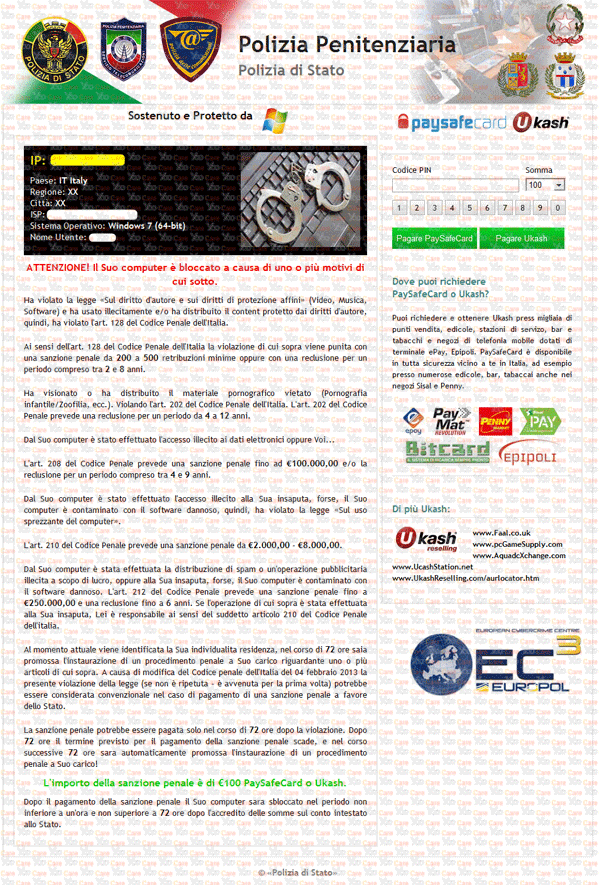
How Do You Know The Polizia Penitenziaria Computer Locked Virus Is Real or Fraudulent?
The Polizia Penitenziaria Virus (Italy) warning message contains the following:
“Polizia Penitenziaria
POLIZIA DI STATO
Attenzione! Il Suo computer è bloccato a causa di uno o più motivi di cui sotto.
Ha violato la legge “Sul diritto d’autore e sui diritti di protezione affini>> (Video, Musica, Software) e ha usato illecitamente e/o ha distribuito il content protetto dai diritti d’autore, quindi, ha violato l’art. 128 del Codice Penale dell’Italia.
Ai sensi dell’art. 128 del Codice Penale dell’Italia la violazione di cui sopra viene punita con una sanzione penale da 2 a 500 retribuzioni minime oppure con una reclusione per un periodo compreso tra 2 e 8 anni.
Ha visionato o ha distribuito il materiale p. vietato (Child P./Zoofilia ecc.). Violando l’art. 202 del Codice Penale dell’Italia. L’art. 202 del Codice Penale prevede una reclusione per un periodo da 4 a 12 anni.
Dal Suo computer è stato effettuato l’accesso illecito alla Sua insaputa, forse, il Suo computer è contaminato con il software dannoso, quindi, ha violato la legge sul “Uso sprezzante del computer”. L’art. 210 del Codice Penale prevede una sanzione penale da €2.000,00 – €8.000,00.
Dal Suo computer è stata effettuata la distribuzione di spam o un’operazione pubblicitaria illecita a scopo di lucro, oppure alla Sua insaputa, forse, il Suo computer è contaminato con il software dannoso. L’art. 212 del Codice Penale prevede una sanzione penale fino a €250.000,00 e una reclusione fino a 6 anni. Se l’operazione di cui sopra è stata effettuata alla Sua insaputa, Lei è responsabile ai sensi del suddetto articolo 210 del Codice Penale dell’Italia.,
Al momento attuale viene identificata la Sua individualita residenza, nel corso di 72 ore sara promossa l’instaurazione di un procedimento penale a Suo carico riguardante uno o più articoli di cui sopra. A causa di modifica del Codice penale dell’Italia del 28 maggio 2012 la presente violazione della legge (se non è ripetuta – è avvenuta per la prima volta) potrebbe essere considerata convenzionale nel caso di pagamento di una sanzione penale a favore dello stato.
La sanzione penale potrebbe essere pagata solo nel corso di 72 ore dopo la violazione. Dopo 72 ore il termine previsto per il pagamento della sanzione penale scade, e nel corso successive 72 ore sara automaticamente promossa l’instaurazione di un procedimento penale a Suo carico!
L’importo della sanzione penale è di Euro 100 Ukash or PaySafeCard.
Dopo il pagamento della sanzione penale il Suo computer sara sbloccato nel periodo non inferiore a un’ora e non superiore a 72 ore dopo l’accredito delle somme sul conto intestato allo Stato.
Unità di analisi sul crimine informatico Piazza del Viminale n.1 – 00184 Roma”
Best Way to Remove Polizia Penitenziaria Virus Ukash Scam Efficiently
Since the Polizia Penitenziaria Virus Ukash scam fully lock your screen and you can’t do anything at the moment. YooCare/YooSecurity provides the most professional online PC service. YooCare experts can plan out a solution to access your computer in safe mode with networking at first. For complete removal instructions please see below:
Before all you people who are going to get in safe mode with networking or safe mode with command prompt, you need to keep hitting F8 key, where is the key?
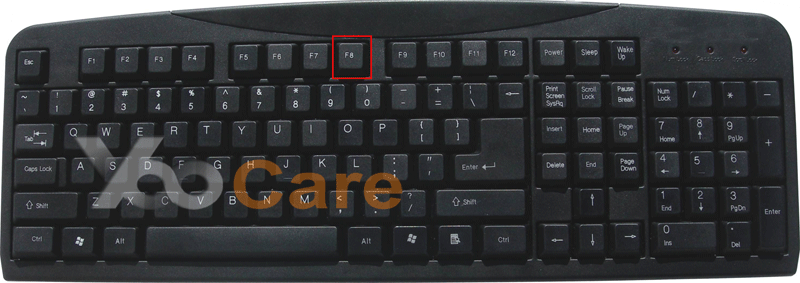
Step A: Restart computer in safe mode with networking. To do this, just need to press F8 key constantly before the system is started like this:
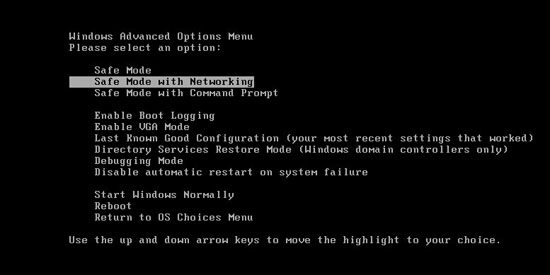
Step B: Press Ctrl+Alt+Del keys to open the Task manager to stop the progress of Polizia Penitenziaria Virus Ukash Scam Malware. Because the name will be changed fast, it will be show with different name.
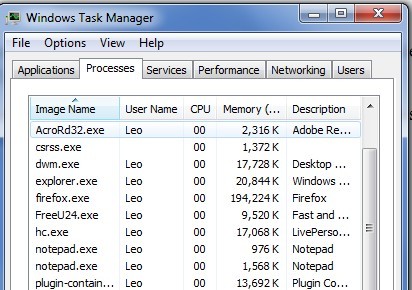
Step C: Delete all the files related to Italy Police Ukash Paysafecard Scam Malware.
%desktop%/random.link
%Appdata%/random letters
Step D: Then by calling your register through the Run option, delete all the registry entries made by this virus.
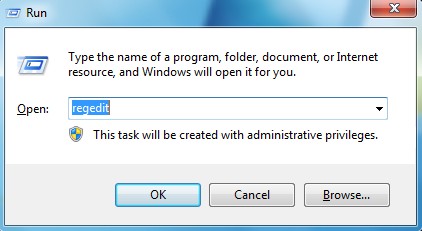
Delete registry entries of Polizia Penitenziaria Virus Italy Police Ukash scam created in computer system.
HKCU\Software\Microsoft\Windows\CurrentVersion\Run\random
HKCU\Software\Microsoft\Windows\CurrentVersion\InternetSettings\WarnOnHTTPSToHTTPRedirect
HKLM\SOFTWARE\Microsoft\Windows NT\CurrentVersion\Image File Execution Options\AAWTray.exe
HKLM\SOFTWARE\Microsoft\Windows NT\CurrentVersion\Image File Execution Options\AAWTray.exe\Debugger svchost.exe
Step E: Restart your computer normally to take it effective.
Video Guide to Remove Ukash Italy Police Virus
Note:
What these hackers are doing with the Polizia Penitenziaria Virus (Italy) is considered fraudulent extortion and it is highly illegal but they are very clever to protect their tracks and their goals are to hit as many computers with this attack as possible and hope that many people are scared into paying the fake fine.
The virus is spread through SPAM emails containing the file hidden in attachments, so unsuspecting users who open these email messages can get the virus instantly simply by opening the attachment! It is very important to not open an email from a sender that you are unfamiliar with. The hackers also hide the file in download links on shareware and porn sites because of the number of visitors these sites attract. Never pay fines online that demand payment through a prepaid source, and if the Polizia Penitenziaria Virus (Italy) hits the PC it is important to remove it right away.
Special tips: Spending a lot of time fixing your computer with no success? Don’t want to get things worse, please contact PC experts to unlock your computer and remove Polizia Penitenziaria Virus (Italy) safely and completely.
Published by Tony Shepherd & last updated on March 29, 2013 7:37 am


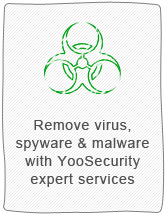
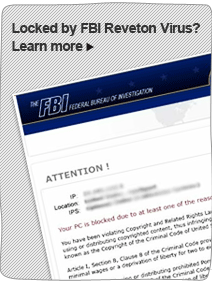

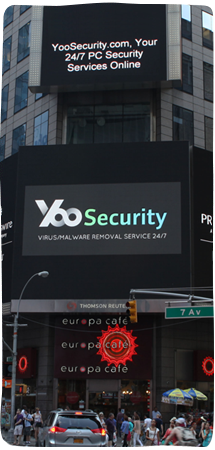







Leave a Reply
You must be logged in to post a comment.